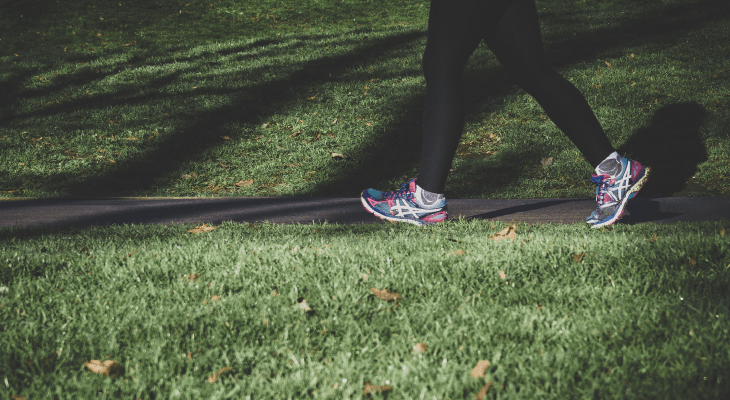7 Weird and Wacky Ways to Get Your Study Mode On
Conventional study methods not working for you? Don’t worry. We’ve scoured the web for 7 wacky and unconventional tips to help you get in the mood to study!
Updated 21 May 2019

We’ve all been there: you plonk yourself at your desk with an army of highlighters, pens and sticky notes, determined to get some studying done. But when you open your textbook, your eyes glaze over the words and before you know it, you already have your next vacation planned.
If you’ve tried an arsenal of study methods and still find that they don’t work for you, here are 7 quirky and unconventional tips that you can try to get your study mode on!
#1. Breathe in some essential oil

Have you ever considered using aromatherapy when doing your revisions? Research suggests that sniffing rosemary essential oil could enhance your memory, with some students achieving better results in memory tests by 5% to 7%.
Sounds good? It’s worth a try!
Sprinkle some drops into a diffuser or dab some oil on your wrist or the collar of your shirt before studying! Such oils not only smell good (and make a great perfume) but may also put you in a good mood to study.
#2. Use comic relief

Transform a boring study session by making up hilarious situations about people you know (or famous characters) you know and incorporating them as part of your study material.
Take this physics problem as an example: If SpongeBob SquarePants is thrown horizontally at 60 km/h from the top of the cliff that is 122.5m high, how long does it take him to reach the ground?
Not only was that entertaining, but you’re more likely to retain new information by recalling or visualising these situations. The more ridiculous it is, the easier you can recall the formula you used to solve the time taken for SpongeBob to hit the ground!
#3. Pay a visit to Mother Nature

This doesn’t mean that you have to spend hundreds of ringgit for a nature retreat outside the city. Rather, you can take a break from studying and go for a quick walk at your nearest park to restore your mental energy.
If you need an incentive, research suggests that spending time in nature may boost your memory and improve your focus. A stroll in the park or even looking at a picture of natural scenery is said to improve your short-term memory by up to 20%!
Additionally, memory specialist Andrew Johnson says it’s easier to recall information when you associate the memory with the environment you were in.
So if you were to study at your favourite park (or anywhere else to your liking), there’s a chance that you’re more likely to recall what you’ve studied. And hopefully, hitting the books will be less dull when you’re at a scenic place.

#4. Recreate popular songs

Have you realised how you can remember the lyrics to your favourite songs, even those you listened to as a kid, but can’t seem to remember what you learnt in class barely an hour ago? That’s the power of music!
So, why not amp up your study sessions by pairing your study materials with some catchy tunes (i.e. School of Rock), like what this Math teacher did with her students?
For example, you can record yourself singing math formulas along to Katy Perry’s Roar for better memory recollection, or replace the lyrics to Taylor Swift’s Shake It Off with facts from your biology class.
You may not be a top hit songwriter or have the voice of Beyoncé, but hey, your very own hits, Chained to the Chemistry or Heartbreak History, are what might help you do well in your exam!
Apply for university with EduAdvisor
Secure scholarships and more when you apply to any of our 100+ partner universities.
Start now#5. Watch YouTube tutorials

If you learn better through visual aids, then video tutorials will be your best friend.
Research suggests that watching videos can improve information retention. They’re useful as they provide comprehensive context to theories in the form of illustrations.
For example, if you need to learn the major anatomical structure of a skeleton for your biology class, a video can explain it in a fun and entertaining way, as opposed to listening to your teacher droning on in class with his or her slides.
There’s a plethora of videos on YouTube and Vimeo dedicated to teaching topic-specific subjects such as advanced chemistry and mathematics, so you’ll be sure to find something you need.
Just be sure not to stray from the real reason you’re on YouTube!
#6. Learn to write your notes in code

Fancy testing the limits of your brain? Then try writing your notes in code!
It can be as simple as rearranging the letters of the alphabets backwards (e.g. Z equals to A, and so forth) or assigning numbers to letters then rewriting your notes in the said code. After all, scientists believe that we have some sort of code-breaking skill in the brain to make sense of things.
Just keep in mind which codes you’ve used or risk confusing yourself!

#7. Get your daily dose of kimchi

Yes, we’re not kidding.
Fermented foods (also known as probiotic foods), such as kimchi, have long been touted to boost healthy bacteria in your gut.
But why is that important? Well, research suggests that boosting beneficial bacteria in your gut can improve your mood and help you cope with stress, which makes it important to get your daily dose of fermented food.
So bring on the kimchi and yoghurt! You’re gonna need this mood-booster when hitting the books.
And there you have it — 7 ways to spice up your mood to study. While different study methods work differently for different individuals, don’t fret if what works for others doesn’t for you. After all, no two people are built the same. But conventional or not, remember to stick to what works for you to achieve that oh-so-coveted A!






